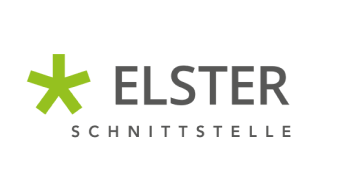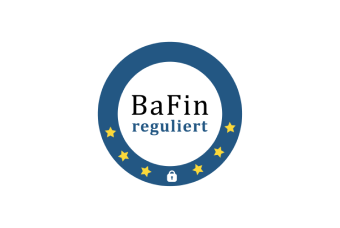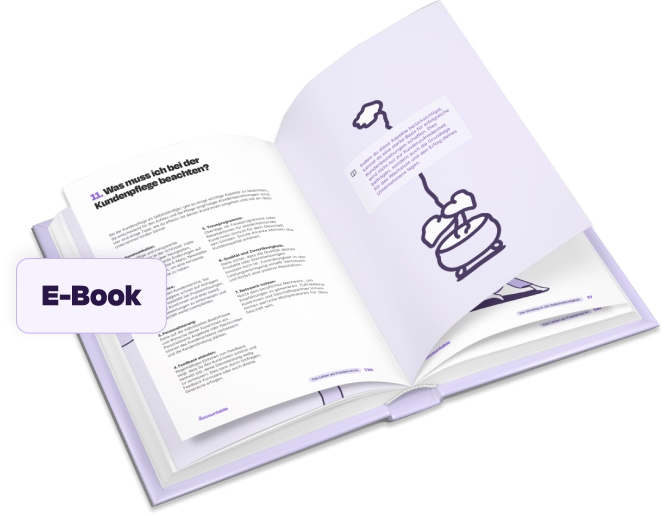As a rule, for every product and service in Germany there is VAT (value added tax) to be paid. End consumers have to pay higher prices accordingly, and companies have to pay the collected VAT to the state.
So far, so simple. But if companies want to offer their goods and services beyond Germany in other countries, they have to deal with the tax regulations of the respective country. While trade within the EU is fairly standardized, things quickly get complicated when it comes to trade in non-EU countries. In this article, we explain what you should bear in mind when invoicing companies in countries like the UK, the USA and Switzerland.
Value added tax is a tax that generally has to be paid in Germany for every product purchased and every service used. It is often abbreviated as VAT on invoices. Since it is a tax, it is also paid to the state as such.
Companies offering services and goods therefore add the corresponding VAT rate to their net purchase price. They are not allowed to keep the extra money they earn, but have to pay it in their VAT return either monthly, quarterly or annually to their local Finanzamt (tax office).
💡If you are subject to VAT as a self-employed person and need to file a regular VAT return, make your life easier and use Accountable for it. It generates your VAT return automatically and can be sent to your Finanzamt directly.
Ready to embark on your self-employed journey? Fill in the official Fragebogen zur steuerlichen Erfassung for free and submit it directly to the Finanzamt.
Go to the form


Mehrwertsteuer is the most common term and often used as synonym for Umsatzsteuer. But to be exact, Mehrwertsteuer is the generic term, while Umsatzsteuer is the same as Vorsteuer. However, they are each viewed from a different perspective: Buyers pay Vorsteuer, companies pay Umsatzsteuer.
If you buy something for your business, you have to pay Vorsteuer for it. At the same time, you can get this Vorsteuer back, when you declare it to the Finanzamt. But if you buy as a private person, you must pay the tax and cannot recover it from the Finanzamt.
As a self-employed professional subject to VAT, for all of the goods and services you sell, there must be VAT added to the final price. The VAT is added to the net purchase price and must later be paid to the Finanzamt.
The VAT identification number is called Umsatzsteuer-Identifikationsnummer in German and usually abbreviated as USt-ID. It is used to uniquely identify a company within the European Union. You can apply for it either when setting up a new company or later from the Federal Ministry of Finance (Bundesministerium der Finanzen).
📌 The VAT ID is absolutely necessary when goods or services are sold abroad in the EU. Therefore, in order to clearly assign the tax liability, the VAT IDs of both parties involved in the purchase must also be indicated on the corresponding invoices.
💡 Tip from Accountable: For sales abroad where VAT is due, it is worthwhile to carry out a VAT ID check in advance. For this purpose, there are various websites that you can use to check the validity of each other's VAT ID.
VAT also plays a role when selling goods or services abroad. However, it depends on whether the client is a private individual or a company and whether the client is based in an EU country or in a non-European country.
The sale of goods or services to a company in another member country of the European Union is referred to as Reverse Charge Regime. Provided that both companies involved in the sale have a VAT ID, no VAT has to be charged on the goods or services. In this case, the buyer is in fact obliged to pay tax on the goods or services received in his own country. This Reverse Charge procedure must also be marked as such on the invoice.
💡 Tip from Accountable: With the tax solution from Accountable, you can create invoices that automatically note the correct legal mention for the Reverse Charge Regime without you needing to worry about the correct form!
However, in order to ensure that the buyer really pays tax on the goods or services in his home country, the seller must not only list the trade in his VAT return, but also submit a so-called Zusammenfassende Meldung. In this short summary, you need to list again all the transactions with clients from the EU separately and submit it to the Finanzamt.
If one of the two parties does not have a VAT ID or is a Kleinunternehmer and is generally exempt from VAT, the invoice should be provided with the VAT rate of the country in which the seller is located.
If goods or services are sold to a so-called third country, i.e. all countries that are not members of the European Union, there is usually no need to include VAT on your invoice. There are some countries that have a tax treaty with Germany that is similar to the Reverse Charge principle, though:
Brexit posed a major challenge not only for the EU but also for freelancers and companies who are wondering what trade with the UK will look like in the future.
As of 2021, deliveries of goods or services to the UK will be regarded as so-called third-country deliveries. Although these are VAT-free for the seller, the buyer in the UK will have to pay import VAT on them. In addition, such deliveries may be subject to special documentation requirements for both the buyer and the seller.
If you want to issue invoices to a company or fellow freelancer based in the USA, things get a bit more complicated. One of the reasons for this is that there are different tax rates in the USA, depending on the state. It also depends on whether what you are invoicing is a so-called other service or the supply of goods.
Other services are all services that are not a delivery; e.g. it could be services or renting an apartment. In the case of other services, the tax liability is shifted to the home country of the recipient. Thus, the service would have to be taxed in the U.S., but not in Germany, provided that the seller is subject to VAT in Germany. This must be noted on the invoice, for example by stating "Service not taxable in Germany".
Since there is no comparable regulation to Reverse Charge with the U.S., you would now need to register in the state where the recipient of your service is located and pay the taxes to the local tax office. However, before you take these steps, you should consult a tax advisor who is familiar with US tax law.
The delivery of goods to the USA is also exempt from VAT, provided that you meet certain requirements specified by the United States. These include, among other things, that you as the German seller must have proof of the arrival of the goods at their destination in the USA. You can find a detailed overview of this on the website of the Chamber of Industry and Commerce in Frankfurt am Main.
Even though Switzerland is a neighboring country of Germany, it is not part of the European Union. Therefore, invoices to Switzerland are theoretically also subject to the regulations for a third country.
However, there is a separate agreement between Germany and Switzerland, similar to the Reverse Charge procedure. This means that when you invoice a company in Switzerland, you do not show VAT on the invoice. The recipient must in turn report the VAT paid to the relevant Swiss Finanzamt.
Here too, however, it should be noted on the invoice that it is a "service not taxable in Germany".
The topic of invoicing clients abroad can get quite complicated. However, when invoicing clients in the EU, the Reverse Charge regulation is a well defined and easy rule, once you get your head around. If you would like to issue invoices to a third country or are unsure about the invoicing process, our team will be happy to help you. We work closely with experienced tax advisors and will be happy to advise you in the future. Just send us an email to [email protected] or ask us here in the chat!
💡Accountable is the tax solution for the self-employed. Download the free app or create an account online. This way, you have your bookkeeping and tax obligations like VAT return under control right from the start. Our team will also help you personally in the chat at any time!
20 Kapitel knallhart recherchiert und vom Steuerprofi geprüft
Kostenlos herunterladen

Author - Sophia Merzbach
Sophia has been a key member of the Accountable team for many years, bringing a unique blend of journalistic precision and in-depth tax expertise to her work.
Who is Sophia ?Thank you for your feedback!
Useful
How much income tax is deducted from your income is largely determined by your tax class. There are ...
Read moreWorking as a self-employed professional has many advantages: You are your own boss and you can choos...
Read moreWorking with international clients can be tricky, depending on where exactly they’re located, whet...
Read moreich finds super wenn man sich mal in ruhe damit beschäftigt hat
Horst Stauff
Sehr freundliches Team
Kai-Michael Schulze
Alles super gelaufen bis jetzt, meine Fragen wurden immer beantwortet.
Anonym
freundlich, competent und ehrlich
Anonym
Very useful tool that simplifies my everyday life through German bureaucracy as a small business owner.
Edoardo Biondini
I always appreciate the support I get from the Accountable team!
Nathalie Fransson
Schnelle Unterstützung, hilfsbereit und lösungsorientiertes Arbeiten ! Absolute Klasse :)
Sven Fiedler
Sehr gute Beratung !! Vielen Dank
Catherine Sauvat-müller
Mir gefällt die Software wirklich sehr gut. Tolle Funktionen, mega-tolle grafische Umsetzung, TOP Support. - Wirklich alles sehr gut. - Danke :)
Tobias Ottensmann
Letzter Support Einwandfrei alle Fragen beantwortet Und zufrieden stellend gelöst Ist bis jetzt soweit super Leider nicht komplett kostenlos. Für Anfänger die noch nicht soviel verdienen Nicht erschwinglich. Sonst top 👍
"Patrick Moleman"